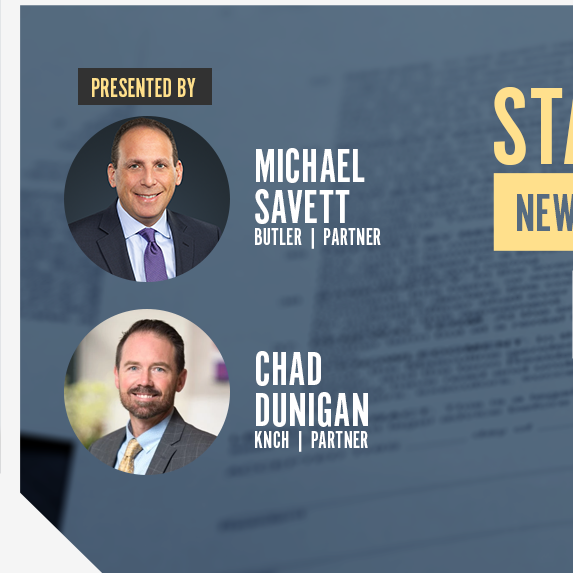
Duty to Initiate Settlement Negotiations Under Powell not Triggered Unless Liability is Clear
Overview | Blog Posts | Third-Party Coverage | Matthew Lavisky | Related | Print | Share
December 15, 2017
In a recent decision, the Eleventh Circuit Court of Appeals affirmed an important order of the United States District Court for the Northern District of Florida in a so-called “Powell claim.” Welford v. Liberty Mutual Ins. Co., — Fed. App’x —, 2017 WL 5899784 (11th Cir. November 29, 2017). The District Court order can be found at Welford v. Liberty Ins. Corp., 190 F. Supp. 3d 1085 (N.D. Fla. 2016).
I. Introduction to “Powell claims”
Florida law imposes a duty of good faith on liability insurers. The duty of good faith requires that insurers “investigate the facts, give fair consideration to a settlement offer that is not unreasonable under the facts, and settle, if possible, where a reasonably prudent person, faced with the prospect of paying the total recovery, would do so.” Boston Old Colony Ins. Co. v. Gutierrez, 386 So. 2d 783, 785 (Fla. 1980). An insurer that breaches this duty may be liable for the total amount awarded against the insured, including an amount in excess of the applicable coverage limits.
To be liable for bad faith in the context of a third-party claim, the insurer must have caused the excess judgment against the insured. Perera v. U.S. Fid. & Guar. Co., 35 So. 3d 893, 901 (Fla. 2010). As a related concept, a liability insurer cannot be liable for bad faith if it had no realistic possibility to settle within the applicable coverage limits. Barry v. GEICO Gen. Ins. Co., 938 So. 2d 613, 618 (Fla. 4th DCA 2006). Accordingly, the general rule in Florida is that “the insurer is not liable for bad faith or conduct tantamount to bad faith in the absence of an offer to settle.” Seward v. State Farm Mut. Auto. Ins. Co., 392 F.2d 723, 728 (5th Cir. 1968); see also Davis v. Nationwide Mut. Fire Ins. Co., 370 So. 2d 1162, 1163 (Fla. 1st DCA 1979) (“[T]he general rule under the case law of this state is that insurance companies will not be liable for an excess verdict if there is no offer of settlement within the policy limits.”).
However, in Powell v. Prudential Prop. & Cas. Ins. Co., 584 So. 2d 12, 14 (Fla. 3d DCA 1991), a Florida appellate court held that “an offer to settle is not a prerequisite to the imposition of liability for an insurer’s bad faith refusal to settle, but is merely one factor to be considered.” The Court stated that “[w]here liability is clear, and injuries so serious that a judgment in excess of the policy limits is likely, an insurer has an affirmative duty to initiate settlement negotiations.” Id. Thus, the Court in Powell recognized that an insurer may have a duty to initiate settlement negotiations when two requirements are met: (1) the liability of the insured is clear, and (2) the injuries are so serious that a judgment in excess of the policy limits is likely. A lawsuit for third-party bad faith where the injured claimant never offered to settle at or below the applicable coverage limits has become known as a “Powell claim.”
II. The Welford decision
The Welford case involved a very unique set of facts. It is not necessary to go through those facts here. However, the decisions of both the Eleventh Circuit and the District Court set out the facts in great detail. Readers who are interested in learning about the facts of the Welford case should read those decisions, particularly the decision of the District Court. The important fact here is that, as the District Court correctly found, ‘by any objective measure, liability was not ‘clear’ on the facts of this case.” Welford, 190 F. Supp. 3d at 1098.
The insurer in Welford attempted to settle the claim within the applicable coverage limits. However, the claimant refused. Ultimately, the underlying negligence case proceeded to a jury trial. The jury apportioned 55% liability on the deceased claimant; 38% on the insured; and 7% on a third-party. A judgment ultimately was entered against the insured for $501,600. The liability coverage limit was $10,000 per person. At no time did the deceased claimant’s estate make an offer or demand to the insurer to settle within the liability coverage limit.
The estate sued for bad faith to recover the judgment in excess of the $10,000 liability coverage limit. The insurer moved for summary judgment arguing it had no duty to initiate settlement negotiations under Powell because liability was not clear. And because the estate had not offered to settle within the liability coverage limit, the insurer could not be liable for alleged bad faith under applicable law.
The estate opposed the motion. It argued first that the insurer had breached its duty to investigate which precluded summary judgment. The estate also argued that it was “‘absurd’ and ‘nonsensical’ to interpret the ‘clear liability’ requirement in Powell to mean that the insured must be principal—if not entirely—at fault for the accident.” Id. at 1095.
The District Court granted summary judgment to the insurer. Regarding the first argument, the District Court held that “[a]n insurer’s ‘duty to investigate’ does not exist in a vacuum; rather; it is part and parcel of the overall duty to settle a claim within policy limits wherever possible, thereby protecting the insured from a potential excess judgment.” Id. Thus, the Court turned to the real question: “did Liberty have an affirmative duty to initiate settlement discussions under Powell?” Id.
In analyzing Powell, the District Court noted:
On its face, Powell does not obligate insurers to initiate settlement negotiations whenever an insured is involved in a crash and has some potential liability. Indeed, if that were the law, insurers would have that obligation in virtually every accident case as it is almost always possible that an insured may be found at least partially liable for an injury. But that is not what the Powell Court said. Rather, at the risk of repetition, Powell speaks specifically about an insurer’s responsibility when its insured’s liability is clear, which generally means: “Free from doubt; sure. Unambiguous.”
Id. at 1096. Accordingly, the Court concluded that
Powell holds that an insurance company is obligated to initiate settlement discussions in a probable excess case even if there is no formal demand, but that obligation exists only if “liability is clear.”
The estate appealed to the Eleventh Circuit. The Eleventh Circuit affirmed. Regarding Powell, the Eleventh Circuit held that “[w]hile [the insurer] did not make a pre-suit settlement offer, there was no affirmative duty under applicable Florida law to do so, and even if there was, such a duty would have been inapplicable because [the insured] was not clearly liable for the accident.” Welford, 2017 WL 5899784, at *4.
III. Conclusion
“Powell claims” continue to provide fertile ground for bad faith lawsuits and bad faith set-ups. Welford reinforces that a liability insurer’s duty to initiate settlement discussions in a probable excess case exists only if the liability of the insured is clear. This is an important decision that should help insurers defend “Powell claims” in those cases where the liability of the insured is not clear.
David B. Krouk, Anthony J. Russo, and Matthew J. Lavisky of Butler Weihmuller Katz Craig LLP represented Liberty Insurance Corporation in Welford both in the District Court and in the Eleventh Circuit Court of Appeals.



